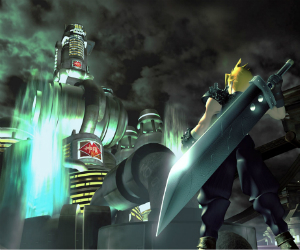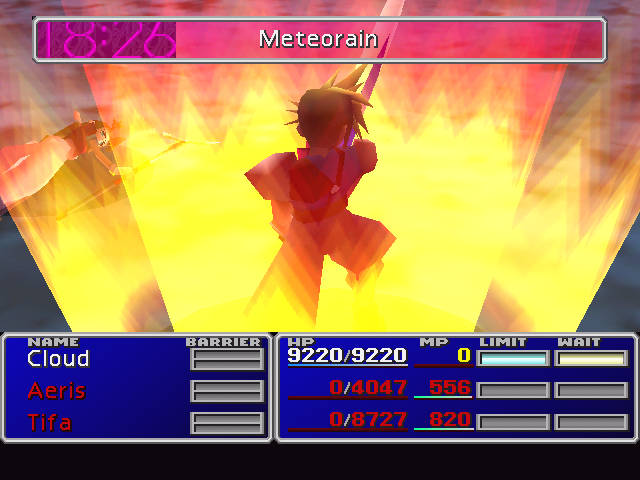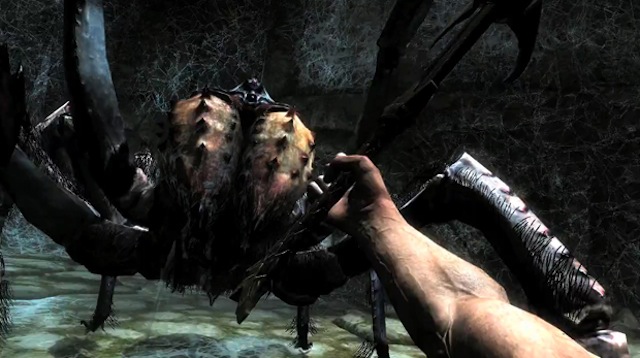To RPG or not To RPG – A Look at the Evolution of the RPG
 It was towards the end of freshman year of high school in, I believe, 1994. My friends and I would lend each other games on a regular basis because rental services for games were not widely available, plus we didn’t have money for that anyway. We were pretty generous with each other but gamers always have that game we never lend out…in my case it was Super Mario Kart. I loved this game and I still play it quite a lot. During lunch, a friend of mine asked to borrow it and, since he was one of my better friends, I decided to consider as long as the game in return was beyond excellent.
It was towards the end of freshman year of high school in, I believe, 1994. My friends and I would lend each other games on a regular basis because rental services for games were not widely available, plus we didn’t have money for that anyway. We were pretty generous with each other but gamers always have that game we never lend out…in my case it was Super Mario Kart. I loved this game and I still play it quite a lot. During lunch, a friend of mine asked to borrow it and, since he was one of my better friends, I decided to consider as long as the game in return was beyond excellent.
He said he would lend me Final Fantasy 3, I was appalled, “You can’t even control the fighting and the characters all look like dwarfs!!!” I said. He reassured me that the game was indeed “dope” (an old slang term meaning good) and it has one of the greatest stories in gaming. I didn’t really care about story at all but my friend was very persistent. He pitched the graphics, the combat, the areas, the ambiance, until I finally gave in. I gave him a week with Mario Kart. Needless to say, I got home and popped the game into the SNES ready to be disappointed. I began the game and Terra’s theme began to play; the music had my attention. A shot of three mechs walking through a snowstorm on screen was some of the best graphics I’d seen on a home system. After the first turn-based battle, it was over, I was hooked. This day marked my first foray in the Final Fantasy series.
What a time that was for RPGs. There were a few before it but I feel Squaresoft, which is now Square Enix, pushed JRPGs into the mainstream, their names becoming synonymous with the genre, many other franchises followed suit, but none had the success of the Final Fantasy series. There were toys, movies, apparel, landmark game entries such as Final Fantasy 7, which almost pushed the popularity into the stratosphere on its own. Everybody was playing, even original RPG haters such as myself; it opened me up to an entirely new genre. I branched off into the Tales games, Chrono Trigger, Secret of Mana, Legend of Dragoon, there were too many to name at this time in the mid-nineties. As much of a monster as the Final Fantasy series was, today it’s lost a lot of its steam. Since the head was severed, the majority of the turn based RPGs have suffered; a different type of RPG is popular today.

Throughout the recent years there have been a surge of more action based RPGs getting the recognition and notoriety that used to be afforded to the turn-based titles. Games such as The Elder Scrolls, Fable, Fallout, Mass effect, and the hugely popular Star Wars: The Old Republic seem to take the crown these days. Some may call it the death of the JRPG but that’s not to say that there isn’t quality games of the turn-based style being released, it just doesn’t have the frontrunner it had in Final Fantasy any more. If I remember correctly the surge began on the last generation systems, a few games moved over from the PC platform in an attempt to grab the new audience, the console technology was just about equal to the PC’s at the point. The first game in my experience that became successful was The Elder Scrolls III: Morrowind. A friend of mine bought it in college and literally disappeared. I think I was enjoying my play through of Final Fantasy X at the same time and I felt compelled to tell him about the game and how great it was. He didn’t even want to hear me. He said talking to me is wasting the time he could be using to play Morrowind. I’m glad games don’t have feelings like humans do.
Alone, I was having some trouble trying to pinpoint what caused this “fall of the JRPG” so I consulted a couple colleagues from our own Godisageek.com staff, Adam Cook, and Calvin Robinson, both of who are avid RPG fans, and both had interesting takes on the situation at hand. It seemed that Calvin felt the genre hasn’t died, but more like taken on a new identity, while Adam feels that some of the games that are considered RPGs today aren’t really RPGs at all; at least not in the conventional sense. I fall somewhere in the middle. I feel the genre has evolved as the new generation of gamers increase. There were a few interesting points thrown around, and games brought up, through this conversation. Adam had not been intrigued by a RPG wholeheartedly since Lost Odyssey as he does not consider games like Mass Effect 2 and Skyrim true RPGs. Adam feels that you don’t actually play a role in these games in the traditional sense, you play the part of a character with a pre-determined destiny, sure, you can affect that destination in a variety of different ways but there’s been something missing with recent games. While speaking more in depth about this, Adam said “When I was younger, playing as Cloud in Final Fantasy 7, I was cloud. When certain characters have certain things happen, I was devastated!”. An interesting concept indeed as it seems that Adam does not feel the same sense of immersion from games such as Skyrim, the created character becomes an almost soulless husk that you can gain experience with, but never actually care about. Calvin disagreed as he feels the option to create a character and project yourself into it is what defines the genre, with the leveling, questing, and battling being what allows you to create a role for yourself.

Times change, games change, and genres are redefined. I was a bit confused at where I stood on this entire concept for a while after having the conversation with Adam and Calvin, I realise that I don’t think the JRPG genre is dead; it’s just in its own sub-genre now. Games such as Mass Effect and Skyrim hold the torch now and that will most likely change in the future as more gamers emerge. Games that mirror Final Fantasy had their time in the spotlight, now something else is having theirs. It’s similar to the 2D fighting craze back in the 90’s, they were everywhere, then 3D fighters were more popular, then first person shooters, and so forth. 2D fighters have recently had a resurgence, perhaps the same will happen with the JRPG genre; everything happens in cycles.





